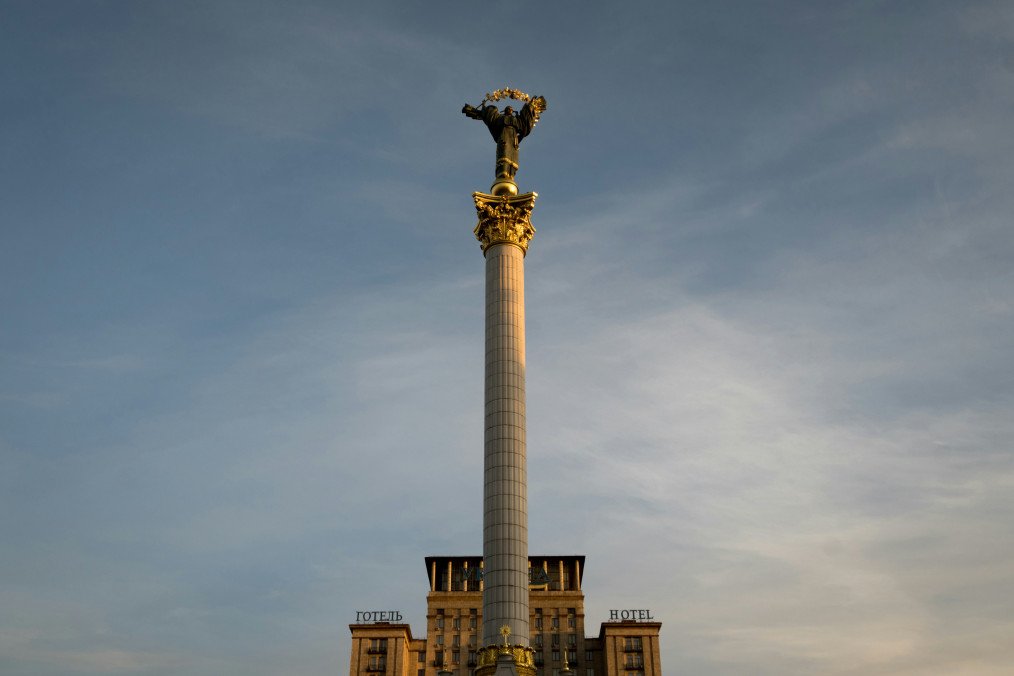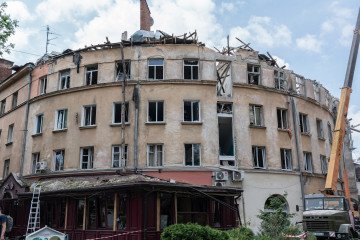The Revolution of Dignity was a turning point for Ukraine. It showed the world that Ukrainians wanted a democratic future, free from corruption and Russian control.
The Revolution of Dignity transformed Ukraine, igniting a powerful struggle for democracy and independence against deeply entrenched corruption and Russian domination. This pivotal moment fueled Ukraine's unwavering determination, shaping its ongoing fight for sovereignty and a future within the European community.
The Revolution of Dignity, also known as the Euromaidan, was a defining moment in Ukraine's modern history. It embodied Ukraine's centuries-long struggle for sovereignty against Russian domination and was a pivotal fight for democracy. Ordinary Ukrainians took to the streets in 2013 and 2014, risking their lives to build a future free from corruption, autocracy, and the Kremlin's stifling influence. The reverberations of their sacrifice are still felt today, both within Ukraine and on the broader geopolitical stage.
Deep Roots: Corruption, Autocracy, and Frustration Under Yanukovych
The seeds of the Revolution were sown long before the first barricades materialized on Maidan, the capital’s central square. President Viktor Yanukovych's administration was synonymous with entrenched corruption, political repression, and an increasingly autocratic style that stifled civil liberties and democratic expression. His regime embodied the worst of Ukraine's post-Soviet political system, where wealth and power were concentrated in the hands of a select few while regular citizens bore the brunt of mismanagement, exploitation and corruption.
Then came November 2013. Anticipation had been building for years regarding a landmark Association Agreement between Ukraine and the European Union. This agreement wasn't simply an economic arrangement; it symbolized a roadmap away from corruption and dysfunction, and towards modernization, rule of law, and integration with Western democracies. Yanukovych, however, abruptly halted plans to proceed with the agreement, caving to intense pressure from the Kremlin. This blatant backtracking served as a final punch to the gut, confirming the suspicions of many Ukrainians that their president cared more about appeasing his patron in Moscow than serving the aspirations of his own people.
Maidan Nezalezhnosti: The Birthplace of an Uprising
Fury erupted quickly. The heart of the burgeoning Revolution took shape in Kyiv's Independence Square, Maidan Nezalezhnosti. This wasn't the first time the square had witnessed protests, but the brutality unleashed on peaceful demonstrators, particularly the beating of students by Berkut forces, shocked the nation. What began as a largely peaceful condemnation of Yanukovych's betrayal grew into a nationwide revolt against everything his government represented. The square transformed into a vibrant, fortified tent city. Artists, business owners, teachers, workers, and everyday Ukrainians flooded Maidan, fueling its atmosphere with unwavering defiance and self-organization. Students, often at the vanguard of the movement, faced riot police with grim determination.
Barricades sprung up as protesters prepared to hold this symbolic ground no matter the personal cost. Kitchens churned out meals, medical workers established field hospitals, and makeshift universities conducted impromptu lectures as Maidan became not just a protest but a microcosm of community resilience. Slogans, poems, and patriotic songs kept spirits up even as the harsh Ukrainian winter took hold. Across the square echoed the chant "Ukraine is Europe" – a defiant rejection of Moscow's dominion and a declaration of self-determination.
Escalating Violence, The "Heavenly Hundred," and an Unyielding Spirit
Instead of dialogue or the slightest concessions, the Yanukovych regime responded with brute force. Ukraine's riot police forces and the feared 'Berkut' special forces violently attacked protesters with little restraint. Demonstrators were beaten, kidnapped, and even disappeared. This disproportionate brutality only served to strengthen the movement and deepen public mistrust of the ruling power. Clashes intensified, culminating in two horrifying periods in January and February of 2014. During these brutal days, government snipers opened fire on unarmed demonstrators, a callous disregard for life that would shock the world's conscience.
By the end, at least 100 pro-democracy protesters were killed. They became forever known as the "Heavenly Hundred" – ordinary people turned martyrs whose deaths galvanized the resistance movement. Each bullet had the opposite effect of what Yanukovych likely intended. Images of Maidan clashes and the growing death toll spread rapidly through social media and independent press outlets. Outrage swept through Ukraine and across the globe, further condemning his regime and turning the movement in Kyiv into a democratic crusade against unchecked tyranny. Ukrainian resilience was pushed to unthinkable heights, demonstrating the immense strength of a united people when confronted with the worst of authoritarianism.
Yanukovych's Downfall and Ukraine's Uncertain Aftermath
By February 2014, Yanukovych had lost control. Facing nationwide hatred, international pressure, and the looming threat of parliamentary impeachment, he abandoned his presidential post and fled Ukraine, ultimately finding refuge in Russia. Despite this hard-won victory, the consequences of the Revolution of Dignity cast a long shadow:
A Solidified European Path, Russian Retaliation: The protests irrevocably altered Ukrainian national sentiment, cementing a desire to chart a distinct European path outside of Russia's influence. But this aspiration toward democracy came at a terrible cost. Incensed by his protege's downfall, Vladimir Putin swiftly seized Crimea, annexing it in a move widely condemned by the international community. Further east, he orchestrated a brutal pro-Russian insurgency in the Donbas region, plunging Ukraine into another war just as it sought to stabilize itself.
International Context: Ukraine Between Democracies and an Aggressive Neighbor
Beyond its internal struggles, Ukraine also occupies a delicate geopolitical position. The Revolution of Dignity solidified its orientation towards democracy, freedom, and a stronger connection to Europe. This is in sharp contrast to Russia's increasingly authoritarian trajectory and its desire to reassert its control over former Soviet nations. Ukraine, therefore, remains not only a symbol of grassroots people-power but a pivotal piece in the larger battle between democratic values and aggressive autocracy. It's this context that gives Ukraine's fight added heft while ensuring continued support from those who see their own principles reflected in the struggle.
A Tragic Escalation: 2022 Invasion and Russia's Continued War on Ukrainian Sovereignty
Russia's animosity towards Ukraine choosing a democratic, Westward path didn't cease with the 2014 annexation of Crimea and war in the Donbas. The ongoing brutal war is a culmination of that antagonism. In February 2022, Vladimir Putin launched a full-scale invasion of Ukraine, cynically framed as a "special military operation" meant to "demilitarize" and "denazify" the country.
But beneath the distorted propaganda lies Russia's true intent: the destruction of an independent, democratic Ukraine. Putin and his regime view Ukraine's European aspirations as an existential threat. A successful, prosperous Ukraine embracing democratic values stands in stark contrast to Putin's Russia, where unchecked authoritarianism, fascism, and imperialistic ambition thrive.
The heroic resilience of the Ukrainian people, fueled by the unbreakable spirit forged during the Revolution of Dignity, is defending more than simply territory. It's a defense of the right to determine their own future, free of oppressive, imperialistic influence. The full-scale invasion is the most extreme, devastating stage of Russia's retaliation against Ukraine's chosen path toward freedom.
Unyielding Spirit
The Revolution of Dignity was a powerful assertion of Ukrainian identity and will. Ukraine has faced monumental trials stemming from Maidan's events, a testament to the high cost of democracy when confronted by the forces of authoritarianism. Though challenges persist, the Revolution ignited something crucial within Ukrainian society: an irrevocable desire for autonomy, self-determination, and a place within the family of European democracies. This unyielding spirit ensures the nation's ongoing fight for its hard-won sovereignty.




-85339c7a2471296aa16e967758e245c6.png)

